- Home
- Jim Eldridge
Murder at the Natural History Museum Page 6
Murder at the Natural History Museum Read online
Page 6
‘He was all I had left,’ she sobbed. ‘His brother and sister died when they were tiny, and then George, my husband.’
Feather shot a questioning glance at Daniel, who nodded in agreement. Feather got to his feet.
‘Mrs Simpson, I’m afraid I have to go now, but Mr Wilson here will stay and give you the details, and then we’d be grateful if you’d answer his questions …’
‘What sort of questions?’ she asked, looking up at him, her face stained with tears.
‘Questions about Raymond’s life, who he knew. We’re determined to find out who did this, and the more we know about him, the sooner we’ll be able to bring this person to justice.’
She nodded, numbed by the dreadful news.
‘You stay here with Mr Wilson, Mrs Simpson. I’ll let myself out,’ said Feather.
Abigail and Sharp returned to the museum and reported to Miss Scott what they’d been told by Dolly and Tess Tilly.
‘They’re both certain there was no roll of cloth when they left,’ said Abigail. ‘So, the body must have been put there after they left at half past eight.’
‘They’re sure of that?’ asked Scott, anxiously.
‘They’re both very reliable people,’ Sharp assured her. ‘If they say it wasn’t there, it wasn’t there.’
‘Did the police arrive?’ asked Abigail.
‘They did,’ said Scott. ‘Inspector Feather and a Superintendent Armstrong.’
‘Ah,’ said Abigail, guardedly.
‘You know the superintendent?’
‘I do,’ said Abigail. ‘He can be a bit brusque sometimes.’
‘That was certainly the case here,’ said Scott, obviously annoyed. ‘He went rushing off to question Mr Stoker at the Lyceum.’
‘Why?’ asked Abigail.
‘He seemed to have formed an idea that Mr Stoker may have been involved in some way.’
‘Well, he found the body,’ said Abigail.
‘In addition to that,’ said Scott.
‘You mean as a suspect?’ asked Abigail, in astonishment.
‘He didn’t say so, but that was the impression he gave.’
‘But that’s ridiculous,’ exclaimed Abigail.
‘Absolutely,’ agreed Sharp, with equal vehemence. ‘Mr Stoker is a gentleman. And I was with him when he discovered Raymond’s body.’
‘Did Inspector Feather go with the superintendent?’ asked Abigail.
‘No. He and Mr Wilson have gone to inform Raymond’s family about the tragedy. I imagine they’ll be back shortly.’
‘If you’ll excuse me, Miss Scott, I’ll get back to my duties,’ said Sharp. ‘I see the body’s been removed, but there will be things to organise.’
Scott nodded. ‘Of course.’
The maintenance manager left, and Abigail said: ‘We need to find out more about Mr Simpson. Who might have had a grudge against him, that sort of thing. Do you know who he was closest to at the museum?’
‘To be honest, I didn’t really know him,’ answered Scott. ‘The best person to speak to is the senior attendant, Brandon Walpole. Mr Walpole engages the attendants. He’ll be better informed about him than I.’
‘Thank you. I will.’
Abigail was about to leave to go in search of Mr Walpole when Miss Scott stopped her.
‘I was thinking: now the investigation looks as if it’s going to be more complicated and could take more time, I was wondering if it wouldn’t be better for you and Mr Wilson if you made use of the spare desk in Mrs Smith’s office as the base of your operations. I foresee all manner of people coming in and out of my office over the next few days.’
‘I understand completely,’ said Abigail. ‘Thank you, that will be excellent. So long as Mrs Smith doesn’t mind.’
‘I’m sure she won’t. She’s out at the moment taking some papers to the British Museum, but I’ll tell her when she returns.’
They were interrupted by the door bursting open and the arrival of a short, round, pugnacious woman wearing a fur coat, with a string of expensive-looking pearls around her neck.
‘Miss Scott!’ she boomed, obviously enraged at something.
‘Lady Fortescue.’ Scott gestured towards Abigail. ‘This is Miss Abigail Fenton, who’s looking into the tragic events that have happened here along with her partner, Mr Daniel Wilson.’
‘There wouldn’t have been any such events if you’d done your job properly.’
‘Lady Fortescue—’ began Scott in gentle protest, but she was overridden by the bombastic woman.
‘This is your responsibility. I said we should have given the post to Mr Watling. He wouldn’t have allowed this to happen! Well, on your head be it. I’m here to inform you that I shall make my views known to the other trustees at the next board meeting. You have failed, Miss Scott. Failed! And I shall see to it that you are removed.’
With that, she headed for the door and made her exit.
Abigail looked after her, stunned, then turned back to Miss Scott.
‘I’m sorry you had to witness that,’ apologised Scott. ‘Lady Fortescue is one of the trustees of the museum, and as you know I asked Mrs Smith to write to all the trustees to inform them about the damaged iguanodon skeleton. I imagine when she arrived she learnt about the unfortunate death of Mr Simpson, which would have given more fuel to her anger. As you heard, she doesn’t approve of me. She wanted the post of curator to be awarded to William Watling.’
‘The anthropologist?’
Scott nodded. ‘The same. Fortunately for me, she was in a minority, which has made her even more resentful.’ She gave a rueful sigh. ‘But I have become used to her anger and her way of expressing her views. And the other trustees seem to be supportive of me.’
‘If there’s anything I can do to help, anyone I can speak to on your behalf,’ offered Abigail. ‘I know Sir Jasper Stone over at the British Museum quite well.’
‘Thank you, but I’m sure there’s no need,’ said Scott. ‘Sir Jasper has been supportive of me as well. But I do appreciate the sentiment. Now, I’d better get back to preparing some correspondence for Mrs Smith’s return. And when she does, I’ll make arrangements with her for you and Mr Wilson to take occupation of her spare desk.’
Daniel watched sympathetically as Mrs Simpson wiped her eyes.
‘He was all I had left,’ she said, miserably. It was the third time she’d said it.
‘Which is why we need to bring the person who did it to justice,’ said Daniel. ‘And to do that, we need to know all we can about Raymond. Did he have any enemies?’
She shook her head. ‘None. He was a popular person, and he enjoyed being at the museum.’
‘How long had he been there?’
‘Two months,’ said Mrs Simpson.
‘Where did he work before that?’
‘Before that he was a waiter and then an usher at a theatre, which meant working late evenings.’
‘At which theatre?’ asked Daniel.
‘The Lyceum. That Sir Henry Irving’s place. Very posh. But he didn’t like the late evenings, that’s why he left. He preferred the museum because it was regular hours during the day and regular pay, not like being a waiter when it’s about tips.’
‘I can imagine,’ said Daniel, sympathetically. ‘A waiter’s wages can be very unreliable. Where did he work?’
She hesitated, then said, apologetically, ‘I can’t remember. He didn’t talk about it much.’
‘Did he ever talk to you about the trial?’
She looked at him, bewildered.
‘Trial? What trial?’
‘The one he was a witness at earlier this year.’
She shook her head.
‘Raymond was never a witness at any trial.’
‘Inspector Feather, along with Superintendent Armstrong, of Scotland Yard told me he was.’
‘No, they’re wrong. Raymond would never have got mixed up in anything like a trial.’
‘It was in the spring,’ said Daniel. ‘T
he trial of Oscar Wilde, the playwright.’
She looked at him now, angry.
‘No,’ she said, sharply. ‘Raymond would never have had anything to do with that. He’s decent.’
‘It was at the Old Bailey …’
‘No,’ she repeated, firmer this time. ‘He wasn’t even in London at that time. He was on the south coast. Brighton. They must have meant another Raymond Simpson.’
‘Superintendent Armstrong recognised Raymond,’ pressed Daniel. ‘I was with him when he did.’
‘No!’ This time it was an angry shout. She stood up and glared at Daniel. ‘I’ll trouble you to go. I won’t have lies about Raymond said in this house.’ She pointed towards the passage and the front door. ‘Out!’
Resignedly, Daniel got to his feet.
‘I’m sorry to have troubled you,’ he said, apologetically. ‘And I am sorry for your dreadful loss.’
With that, he left, aware the whole time of Mrs Simpson’s look of venom directed at him.
CHAPTER NINE
Inspector John Feather sat in the small interview room at Wormwood Scrubs prison. Across the table sat Benny Wardle, wearing the distinctive prison uniform printed with broad black arrows. A warder stood guard, grim-faced, his eyes on Wardle. Feather had told the warder there was no need for his presence there, as a Scotland Yard detective with many years’ experience he was perfectly capable of being left on his own with the prisoner.
‘Rules,’ said the warder, sourly. ‘A warder has to be present if the prisoner’s out of his cell, whoever he’s with. He could attack you, and then where would be we? Me, I’d be out of a job.’
So, Feather resigned himself to the fact that his conversation with Wardle would have an audience, which he hoped wouldn’t hamper the man answering his questions.
‘Tell me about the Bone Company, Benny,’ said Feather.
‘What Bone Company?’ he asked, looking baffled.
‘The Bone Company of America,’ said Feather. ‘According to your partner, Erskine Petter, you and he have a contract with them to sell dinosaur skeletons.’
Wardle looked at him with even more bewilderment. Then he laughed.
‘Dinosaur skeletons?’
‘That’s what your partner said when he wrote to the Natural History Museum. I’ve seen the letter, and it’s got your name at the top as a partner. Petter and Wardle.’
‘I’m a partner all right. I look after the debt collection side of the business.’ He looked ruefully about him and at the grim-faced warder. ‘At least, I used to. There’s not much chance to do that from inside here.’
‘So, you don’t know anything about selling dinosaur skeletons?’
‘Inspector, I’ve been in here for almost three months. I’ve had nothing to do with anything that Erskine’s been up to in that time.’
‘He said this dinosaur skeleton business was started months ago.’
‘Well, it may have been, but he never said anything to me about it.’ He scowled. ‘In fact, I haven’t heard anything from Erskine for a month now, and he said he’d look after me and Billy while we was in here.’
‘Maybe you ought to write him a letter and ask what’s happening,’ said Feather.
Wardle grinned, then chuckled.
‘Come on, Inspector. You know I don’t write. Look, if you see Erskine again, can you put in a word for me? Ask him to call in and see me. That’s all I ask. That ain’t much, is it?’
‘I’ll see what I can do,’ said Feather. ‘But what exactly does Petter and Wardle do?’
Wardle looked puzzled.
‘You said you’ve seen Erskine,’ he said. ‘What did he say?’
‘He said you’re agents representing people.’
Wardle nodded. ‘Well, that’s what we are, then.’
‘What sort of people do you represent?’
‘That’s Erskine’s side of the business,’ said Wardle. ‘I don’t have anything to do with that.’
‘You just collect debts.’
Wardle nodded.
‘And you know nothing about dinosaur skeletons.’
‘Mr Feather, I don’t even know what a dinosaur is,’ said Wardle. ‘What is it?’
‘They were animals that lived hundreds of thousands of years ago,’ Feather told him. ‘Possibly millions of years ago. They’re extinct.’
‘They stink?’ frowned Wardle. ‘What of?’
‘Extinct,’ repeated Feather, speaking slowly and stressing the word. ‘There are none left now. So, their skeletons are very rare and worth money.’
‘And Erskine’s got one?’ asked Wardle.
‘He claims to represent a company who’s got some.’
‘So, he must be worth a bit now,’ said Wardle. He frowned again. ‘I hope he’s making sure I’ll get some of it when I come out.’
‘That’s between you and him,’ said Feather.
‘Well, when you see him, tell him I’ll be expecting he’ll look after me.’
‘I will,’ said Feather. He stood up. ‘But if you want my advice, when you come out I’d look for something else other than being Erskine Petter’s strong-arm man. Remember, that’s what got you in here in the first place.’
‘It wasn’t his fault,’ defended Wardle. ‘Me and Billy went to the wrong shop.’
‘Then that’s another piece of advice for you,’ said Feather. ‘Learn to read.’ He walked to the door and banged on it for it to be opened.
‘Remember what I said, Mr Feather. About Erskine looking after me. I’d like to see him. They do visiting days here.’
‘I’m sure Erskine knows that,’ said Feather. ‘But when I see him, I’ll pass on your message.’
Abigail found Brandon Walpole in the Grand Hall, inspecting the dinosaur skeletons and fossils on display to make sure they were clean. He smiled in greeting when he saw her.
‘Can I help you, Miss Fenton?’
‘Yes. I’m trying to find out as much as I can about Raymond Simpson.’
‘A tragedy,’ murmured Walpole. ‘A very promising young man.’
‘How did he get on with the rest of the staff?’
‘He appeared very sociable. He was a nice enough young chap. Polite. Keen to engage in conversation with visitors, which we encourage. If people are made to feel welcome they’ll return again and again, and encourage their friends to do the same.’
‘How long had he been here?’
‘Two months.’
‘How did he come to be engaged? Was he recommended by anyone?’
Walpole shook his head.
‘No. He arrived and asked to see the senior attendant. I saw him, and he said he wondered if there were any vacancies for attendants here. He told me he lived near to the museum and had often come here as a visitor.’
‘Was that unusual as a way of taking on staff?’
‘Yes. Usually it’s done by personal recommendation, but I thought his approaching us in that way showed initiative.’
‘Did he say where he’d worked before?’
‘He’d done various jobs: he’d been a waiter in a restaurant and had also worked as an usher at the Lyceum Theatre.’
‘Did he bring any references from his previous employers?’
‘No. He told me he hadn’t asked for references from them because he didn’t want to carry on with the kind of work he’d been doing before. He said the unsocial hours didn’t suit him as he had a widowed mother to look after and he wanted to be at home with her in the evenings. As I say, I found him personable and felt he was genuine, so I decided to give him a week’s trial. I was not disappointed by him. He seemed the ideal person to be an attendant here, and so I made his engagement permanent.’
‘You say he was an usher at the Lyceum Theatre. Do you also know which restaurant he worked at as a waiter?’
‘Actually, I do,’ said Walpole. ‘Not because he told me, but because it’s a local place and earlier this year I went there for a meal with my sister. It was her birthday. And young Raymon
d was a waiter there. The Rigatoni on Cromwell Road.’ He gave a smile of nostalgia. ‘You know, I’d quite forgotten that until this moment.’
‘But he never had a reference from them?’
‘No. As I said, he hadn’t asked for references from them because he didn’t want to carry on with the kind of work he’d been doing before. And because I’d seen him at work at the Rigatoni and was impressed by his manner and efficiency, I didn’t think any were needed in this case.’ He looked distressed as he added: ‘I can’t think of any reason why anyone would want to harm him.’
Feather mounted the narrow, grimy staircase, then walked along the passageway to the door marked ‘Petter and Wardle’, where he knocked on the glass before opening it and entering.
Erskine Petter looked up from his desk suspiciously at his caller.
‘Let me guess,’ he grunted. ‘Police. You’ve got it written all over you. Well, there’s nothing wrong here. I run a legitimate business.’
‘Interesting that you should have a sixth sense about police officers when they’re in plain clothes,’ observed Feather.
‘It’s the look,’ growled Petter. ‘That and the flat feet.’
‘Inspector Feather from Scotland Yard,’ Feather introduced himself.
‘Scotland Yard?’ echoed Petter, warily. ‘What’s your business here?’
‘I’ve been at the Scrubs today, talking to your partner, Benny Wardle.’
‘Mr Wardle’s incarceration is nothing to do with me,’ said Petter.
‘So, he and his brother weren’t acting as your strong-arm men in collecting money?’ asked Feather.
‘Certainly not,’ snapped Petter. ‘And if that’s what he told you—’
‘What he told me about your business will keep for the moment. I’m here because I understand you have a letter from the Bone Company of America authorising you to act as their agents over the sale of dinosaur skeletons.’
‘Who says I have?’ blustered Petter.
‘The Natural History Museum. So, have you, or haven’t you?’
‘As you ask, yes, we have,’ said Petter, stiffly.

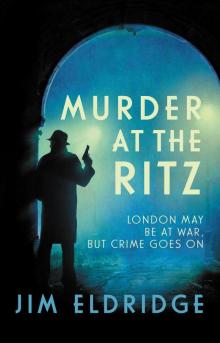 Murder at the Ritz
Murder at the Ritz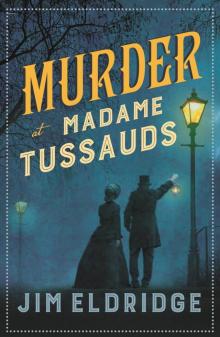 Murder at Madame Tussauds
Murder at Madame Tussauds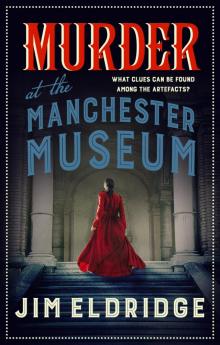 Murder at the Manchester Museum
Murder at the Manchester Museum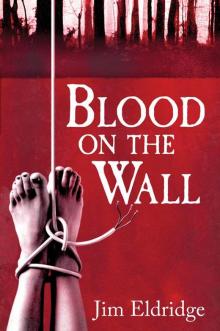 Blood On the Wall
Blood On the Wall 4.3.2.1
4.3.2.1 Jungle Kill (Black Ops)
Jungle Kill (Black Ops)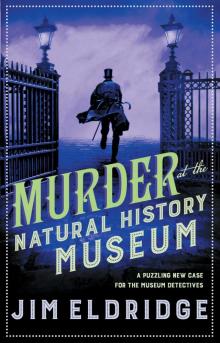 Murder at the Natural History Museum
Murder at the Natural History Museum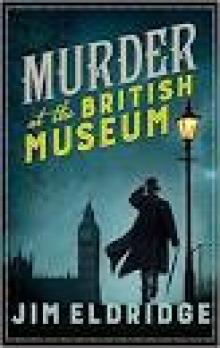 Murder at the British Museum
Murder at the British Museum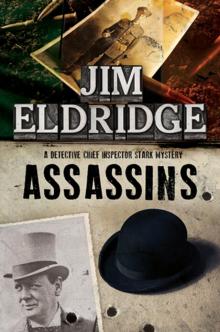 Assassins
Assassins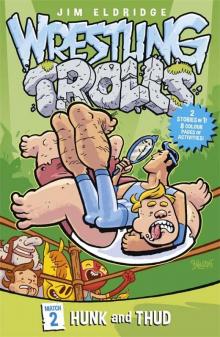 Hunk and Thud
Hunk and Thud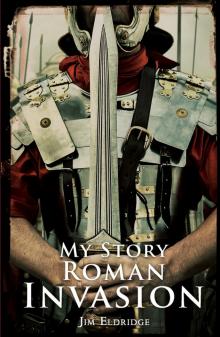 Roman Invasion
Roman Invasion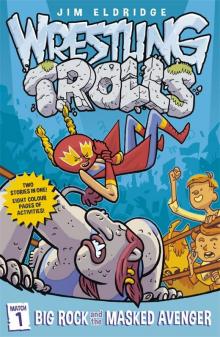 Big Rock and the Masked Avenger
Big Rock and the Masked Avenger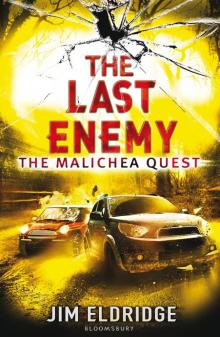 The Last Enemy
The Last Enemy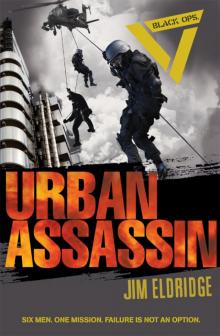 Urban Assassin
Urban Assassin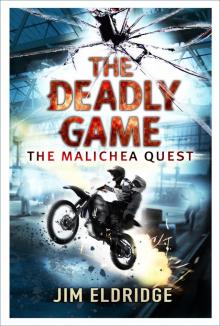 The Deadly Game
The Deadly Game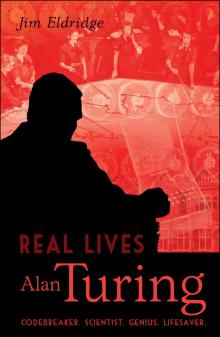 Alan Turing
Alan Turing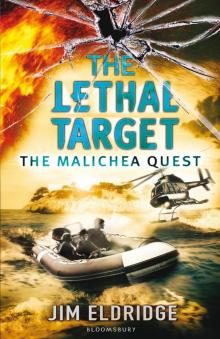 The Lethal Target
The Lethal Target The Giant Rumble
The Giant Rumble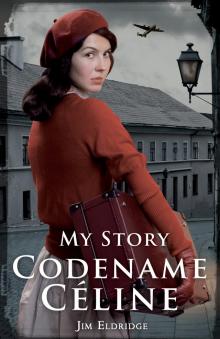 Codename Céline
Codename Céline Death in the Desert
Death in the Desert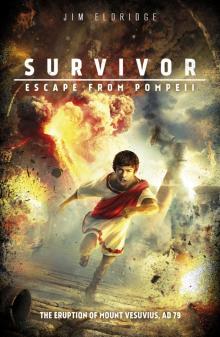 Escape from Pompeii
Escape from Pompeii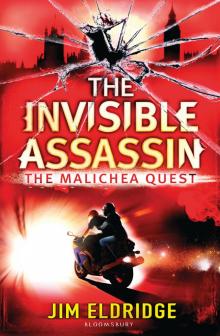 The Invisible Assassin
The Invisible Assassin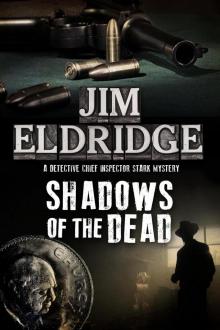 Shadows of the Dead
Shadows of the Dead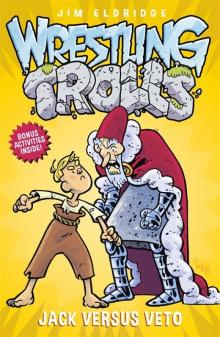 Jack Versus Veto
Jack Versus Veto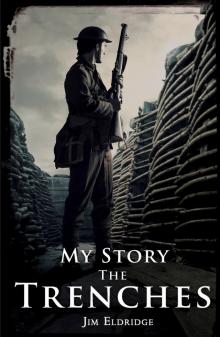 The Trenches
The Trenches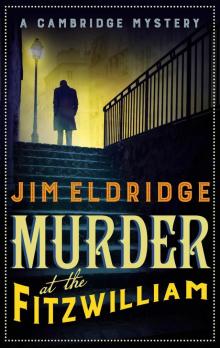 Murder at the Fitzwilliam
Murder at the Fitzwilliam Coming Home
Coming Home